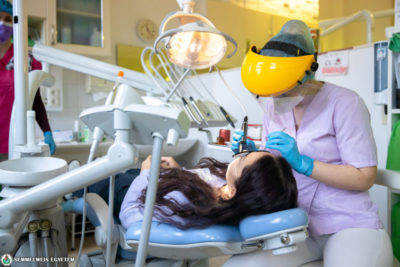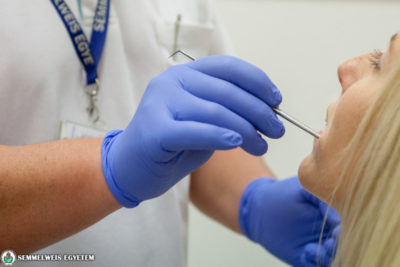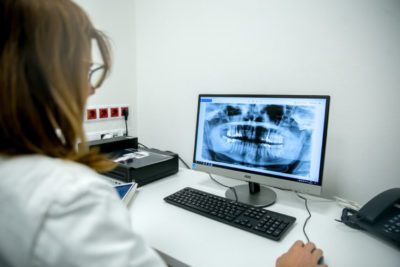Online home learning and the lack of physical education classes are all factors increasing the incidence of obesity. Many children have gained up to 7-10 kilograms in the recent months. Who is considered to be overweight? Should a child be encouraged to lose weight? Or what vitamins does a small child need?
 “In Hungary, one third of the population is overweight, which is a high proportion globally as well. Weight gain of obese people usually begins in childhood, but serious complications do not appear until later. That is why the prevention of adult obesity should start in childhood”, highlights Dr. András Szabó, Professor at the 2nd Department of Pediatrics of Semmelweis University.
“In Hungary, one third of the population is overweight, which is a high proportion globally as well. Weight gain of obese people usually begins in childhood, but serious complications do not appear until later. That is why the prevention of adult obesity should start in childhood”, highlights Dr. András Szabó, Professor at the 2nd Department of Pediatrics of Semmelweis University.
According to the professor, in the current epidemic situation, it is not easy to get a child to be active, as during online learning they spend even more time in front of the computer and television.
“At the same time, many people consume soft drinks containing a lot of sugar and fattening snacks for boredom, so even a weight gain of 7-10 kilograms is not a unique case in a few months”, the professor points out.
“Classic weight loss is not recommended for growing children, in which case the parent should be careful to prevent further weight gain, as normal body proportions are expected to be restored on their own during growth”, says Dr. András Szabó.
At the same time, it is important that the family can reduce abnormal eating habits and excess calories consumed.
In addition to the presentation on the prevention of childhood obesity, Dr. András Szabó awaits those interested with another topic as well at the Semmelweis Health Days on 25 March entitled “Do we need vitamins? – Prevention of Deficiencies ”.
The professor recalls that while extreme unilateral eating led to a number of diseases in the past, such as scurvy due to vitamin C deficiency in the case of sailors or beriberi due to vitamin B1 deficiency in the case of people consuming too much husked white rice. However, based on today’s diverse eating habits, people in developed, richer countries should not have to deal with vitamin deficiencies, yet this does occur.
Most water-soluble vitamins can indeed be taken into the body with nutrients. Vitamin D, on the other hand, cannot be supplemented with food, even if it is found in small amounts in, for example, sea salmon or some forest mushrooms, and it is not possible to consume enough of these to provide enough vitamin D.
This is a problem especially during the winter sunless months, so it is definitely recommended to provide a supplementation then. Which vitamins do we really need to take? At what dose should they be used? And what role does vitamin D play in our resistance to viruses? – these are the questions for which Dr. András Szabó, university professor will also provide an answer during his presentation.
At an online event on 25 March, participants will be able to listen to other interesting presentations, such as what happens when a diabetic child “outgrows” the children’s clinic, what parents need to pay attention to if their child undergoes a liver transplant, how does night respiratory support provide healing, or why it is important to pay attention to telltale signs of the body as early as childhood. In addition to the presentations combined with the consultation opportunity, participants will be able to attend movement developmental exercises designed for babies and children, also a resuscitation demonstration of basic-level.
Orsolya Dávid
Photo: Attila Kovács – Semmelweis University
Translation: Katalin Illés-Romhányi


